Showing posts in
5712 search results found
-
Project
Near-Real-Time Monitoring Extreme Weather Events and Impacts on Waste Picker Cooperatives – NRTM
Read More -
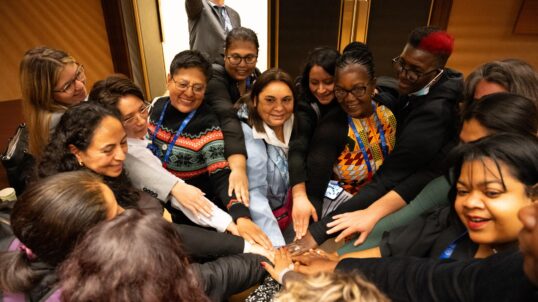 News
Global Advocacy and Negotiations May 27, 2025
News
Global Advocacy and Negotiations May 27, 2025Ten Years After Recommendation 204, Workers in Informal Employment Continue Their Call for Rights-Based Formalization
Read More -
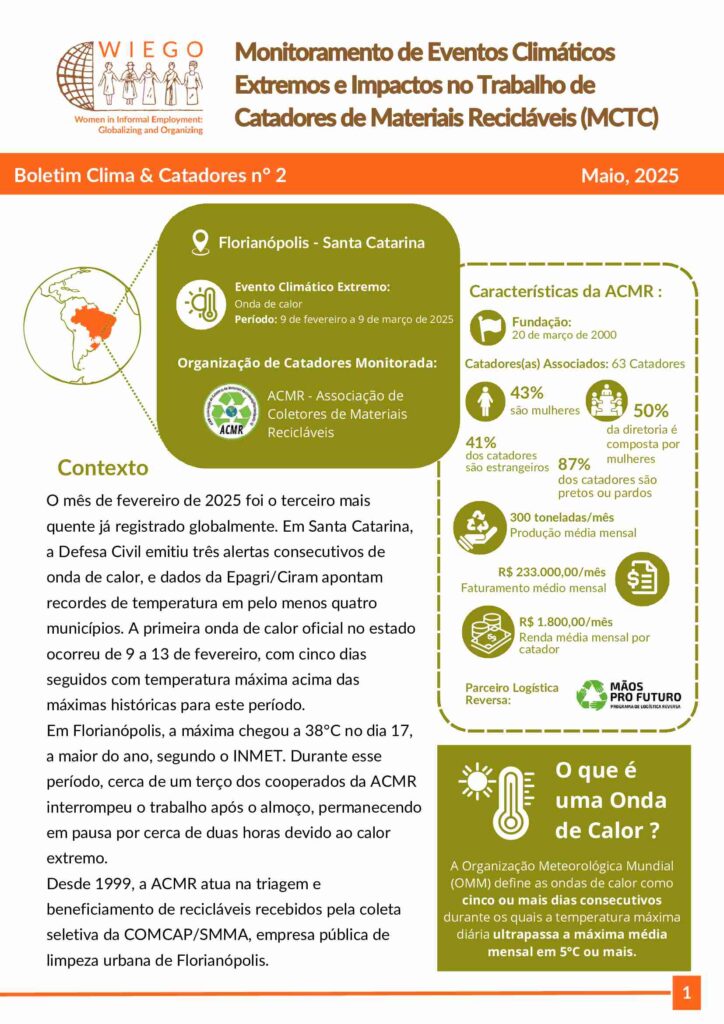 Project Reports
Project Reports
Boletim Clima & Catadores n° 2
Read More -
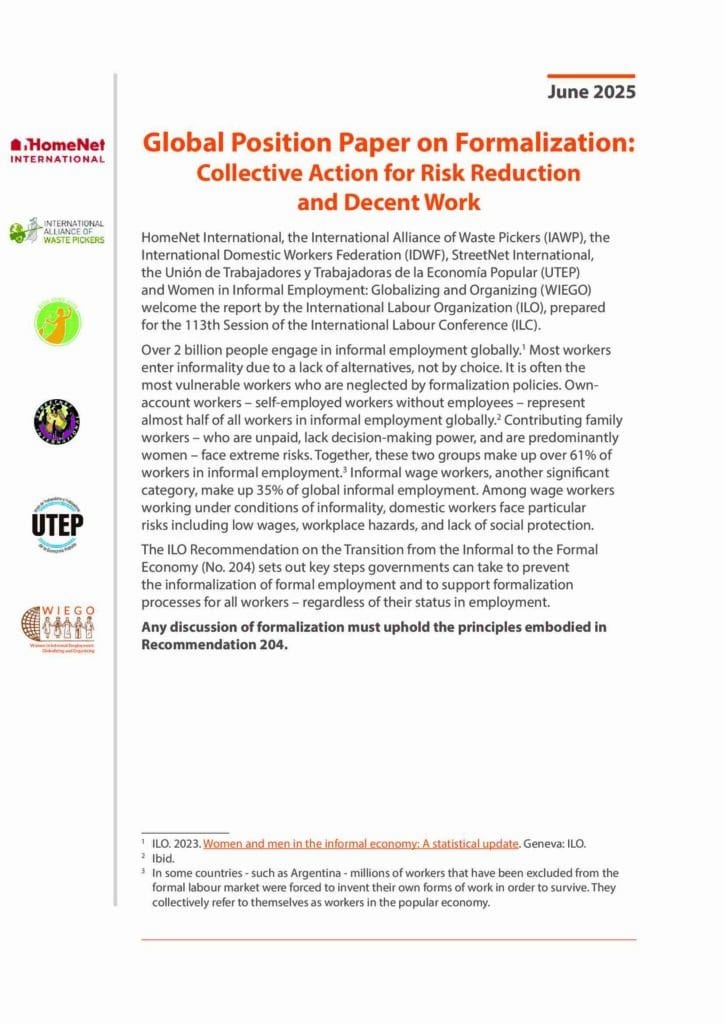 Policy/Position Documents
Policy/Position Documents
Global Position Paper on Formalization: Collective Action for Risk Reduction and Decent Work
Read More -
 Jun
02
2025
Jun
02
2025
113th Session of the International Labour Conference (ILC)
- June 2, 2025
-
ILO Headquarters
Geneva, Switzerland
-
 Post
Climate Change and Just Transition May 19, 2025
Post
Climate Change and Just Transition May 19, 2025The Climate Tragedy of Rio Grande do Sul Revisited from the Perspective of Waste Pickers
Read More -
 Post
Climate Change and Just Transition May 19, 2025
Post
Climate Change and Just Transition May 19, 2025A Tragédia Climática do Rio Grande do Sul Revisitada à Luz dos Catadore-as de Recicláveis
Read More -
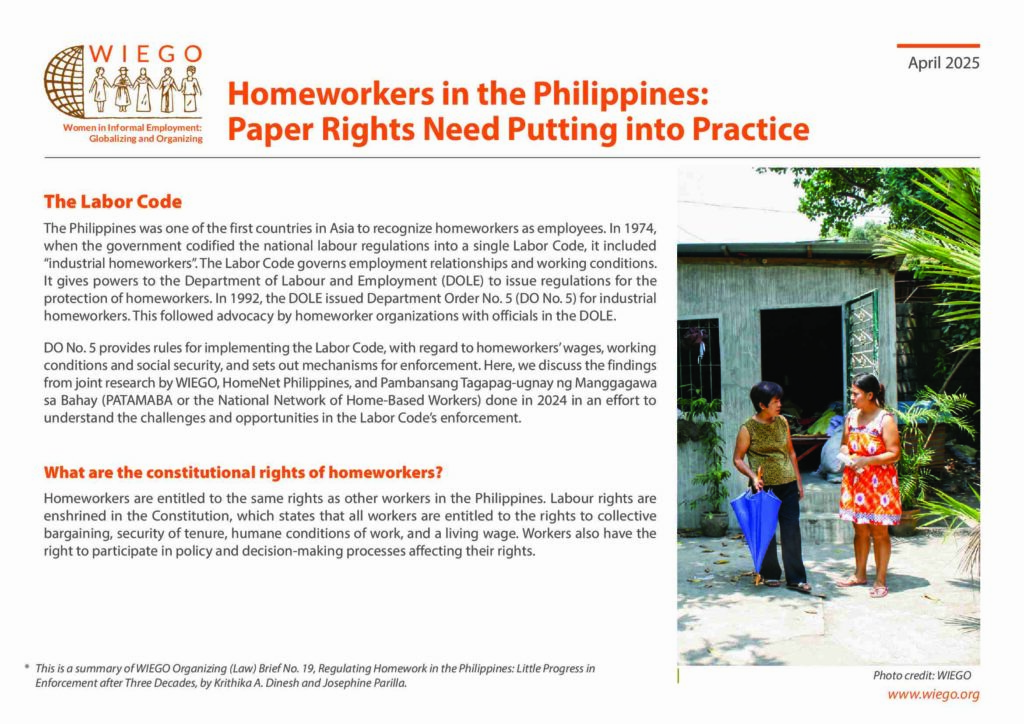 Organizing Briefs
Organizing Briefs
Homeworkers in the Philippines: Paper Rights Need Putting into Practice
Read More -
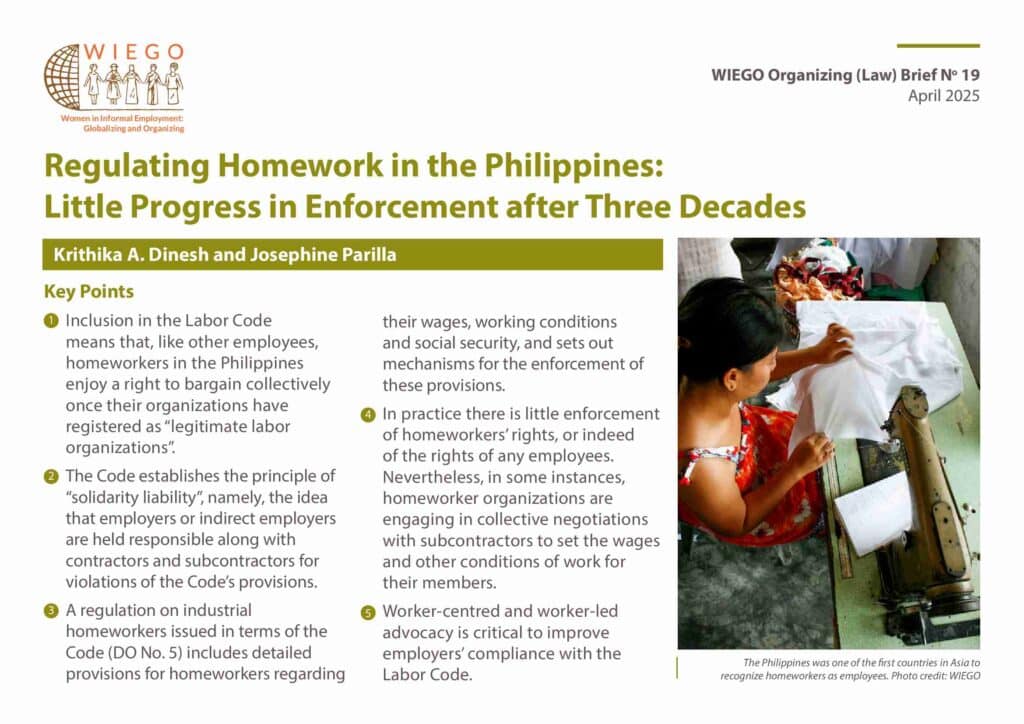 Organizing Briefs
Organizing Briefs
Regulating Homework in the Philippines: Little Progress in Enforcement after Three Decades
Read More -
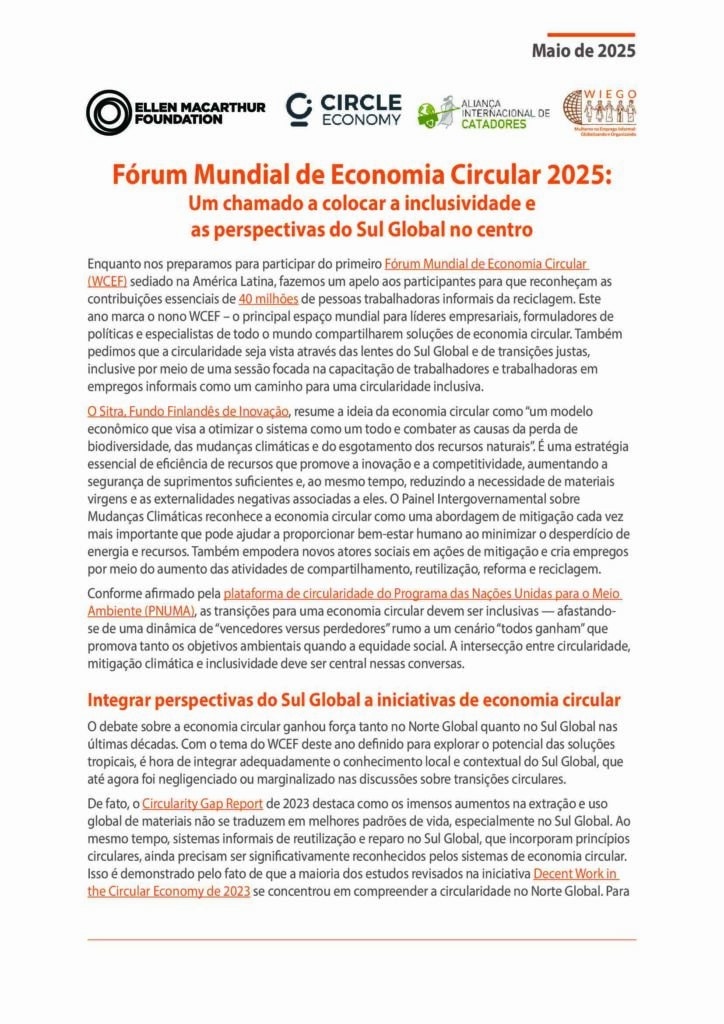 Policy/Position Documents
Policy/Position Documents
Fórum Mundial de Economia Circular 2025: Um chamado a colocar a inclusividade e as perspectivas do Sul Global no centro
Read More